Why become a farrier?
Simple; because you love horses.
Today's farrier doesn't just put shoes on horses. They have experience handling a variety of horses and through hard work and study are equine hoof-care specialists. Your role as a farrier is to improve a horse's comfort and make sure they're living their best life.
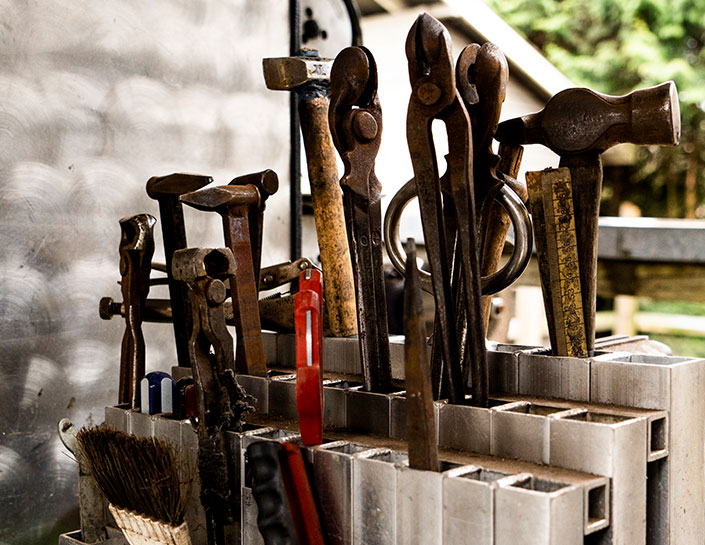
Certificate in Farrier Science
If you love horses and want a career working with them, KPU's new Certificate in Farrier Science program is your pathway to achieving that.
A farrier is an expert in equine hoof care, with a deep knowledge of horse anatomy and physiology. Farriery is a physical, but rewarding career.
Our program offers you a mix of classroom instruction and applied learning to prepare you to deliver exceptional care to any horse.
The next intake for this program will begin on October 27, 2025 and finish on June 5, 2026.
We look forward to welcoming you into our new Farrier Sciences program and building what is possible for your equine career.
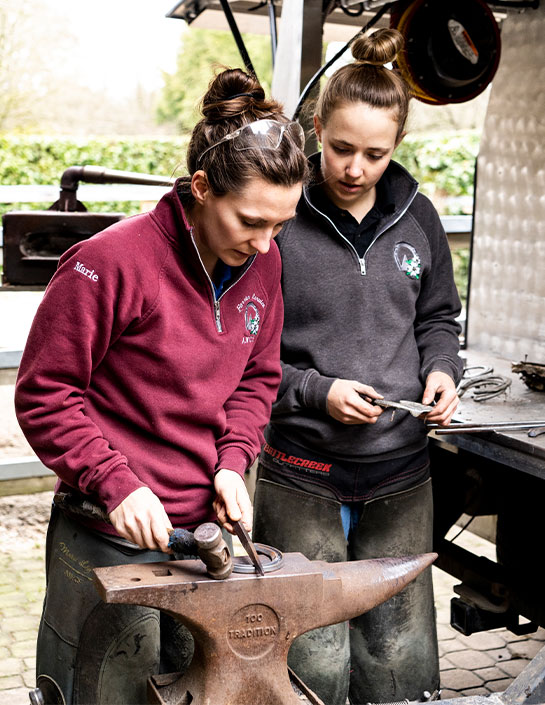
Who Studies Farrier Science?
The obvious answer: anyone who loves horses. But studying farrier science needs more than a love of horses.
A farrier is entrepreneurial, self-motivated and wants to be their own boss. They are resourceful and enjoy solving problems. Farriers also enjoy physically demanding work and working outdoors.
If you have experience working with horses and are looking to turn that passion into a career, this program will get you job-ready and prepared for your future as a farrier.
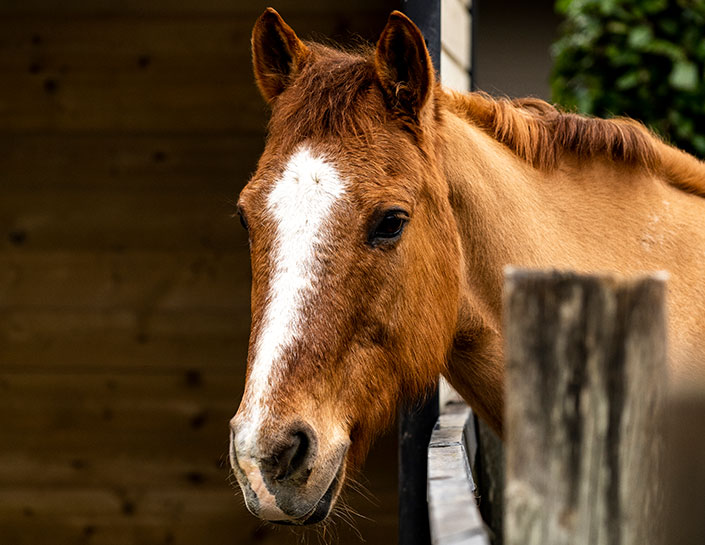
Program Details
This 30-week program teaches you the knowledge, skills and behaviours to work proficiently as a qualified farrier, meeting the needs of horse owners in a variety of equine disciplines, and maintaining and improving the well-being of their horses.
During this program, you'll gain an understanding of equine anatomy and physiology, and the necessary skills to carry out farriery in a safe, humane and empathic manner, allowing you to adapt your work to the needs of each horse. The applied learning portion of your program, teaches you how to handle horses, trim hooves, forge and shape metal, make horseshoes, and shoe horses.
Program Overview Admission Requirements
Personal Protective Equipment and Tools
For your safety we require you to dress appropriately while working in the farrier barn. You must wear CSA approved steel-toed work boots that cover the ankles, safety glasses, hearing protection and a farrier’s leather apron. Long hair must be tied back and tied up.
Beyond safety gear, you must purchase your tools before starting the program. The cost of tools is approximately $2,200. A full list of tools, equipment and supplies will be provided by the instructor.
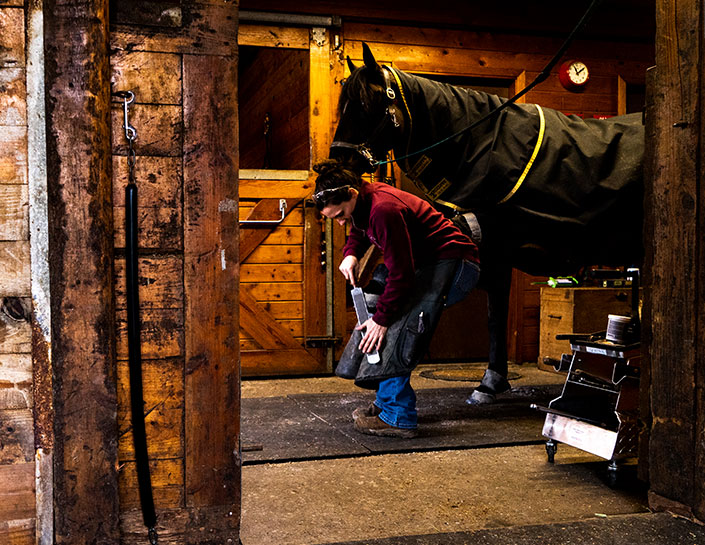
A practicum (FARR 1140) ensures hands-on skill development, exposing you to farriery in the field. An ePortfolio (FARR 1150) provides you with the opportunity to document, track and reflect on your classroom, shop, and field experiences and build your professional network.
The program is delivered at the KPU Tech campus. You will have class and shop time with the instructor four days a week. On the fifth day you'll start developing your industry connections by researching, investigating and interviewing farriers, veterinarians, farrier suppliers and others areas of the horse industry. This will be the beginning of your e-portfolio, detailing how you are reaching out and interacting with your new network.
The first part of the program teaches you how to handle horses, trim hooves, forge and shape metal, make horseshoes and shoe horses.
From March through May each student will spend 240 hours working alongside a professional farrier gaining first hand knowledge of a successful farrier practice. Students will use the e-portfolio to demonstrate how their learning is applied in the field.
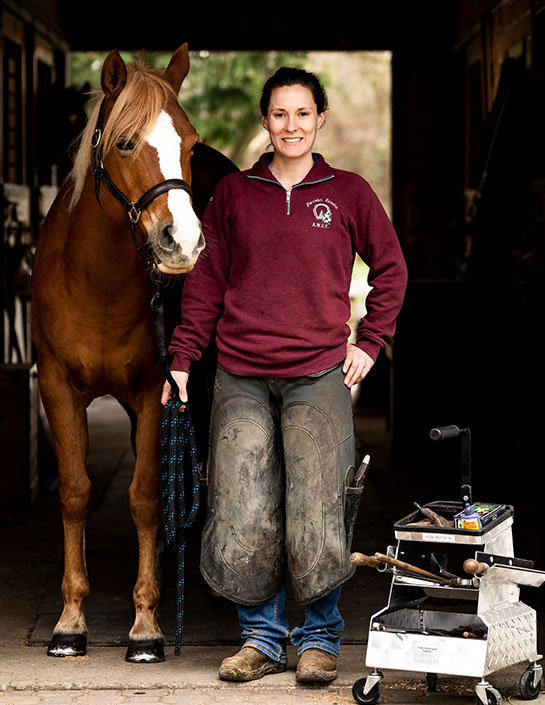
Marie Leginus, Certificate in Advanced Farrier Training
Career Outcomes
Depending on the sector of the industry you work in, you'll have the opportunity to work in many different environments, everything from ranches to racetracks, and with a variety of different horse breeds.
In addition to farriery, the certificate can open doors to work in the following equine industry sectors:
- Recreational
- Guide
- Ranch/Work
- Sport
- Racing
Graduates from KPU's farrier program have gone on to successful careers around the world, as well as to compete at the international level.
Our Faculty

Heather O'Brien - Primary Instructor
I graduated from the Kwantlen Farrier Program in 1982. From there I worked as a farrier, trimming and shoeing all manner or horses. In 1987 I became very interested in Blacksmithing, and to this day I continue with both professions. Farrier as a living and Blacksmithing as a hobby.

Gerard Laverty - Substitute Instructor
Gerard Laverty has a thirty year career as a working farrier in several different countries. Gerard’s career began in the early seventies in the North of Ireland.
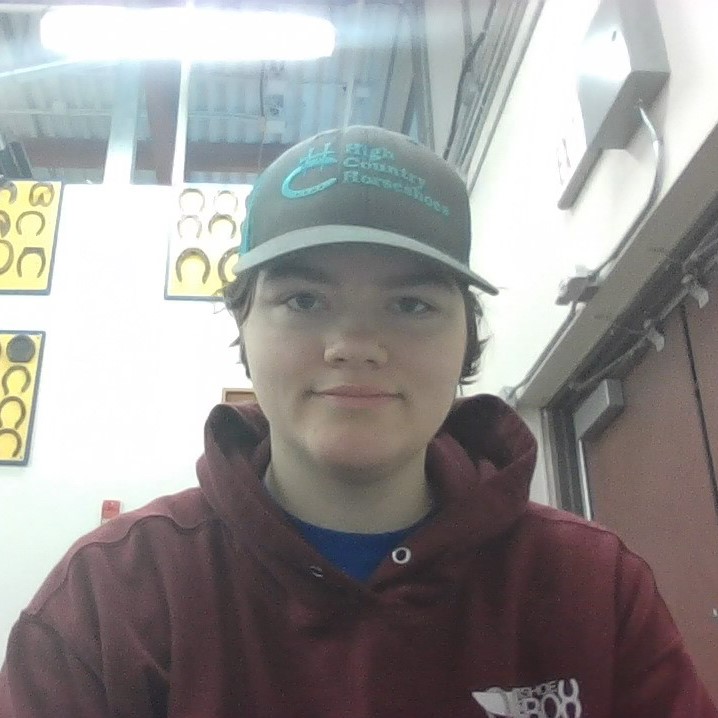
Kaylin Ottens - Program Assistant
Kaylin Ottens is a 2023 graduate of the KPU Farrier program. They enjoy competing, and runs their own farrier business serving various areas of BC.